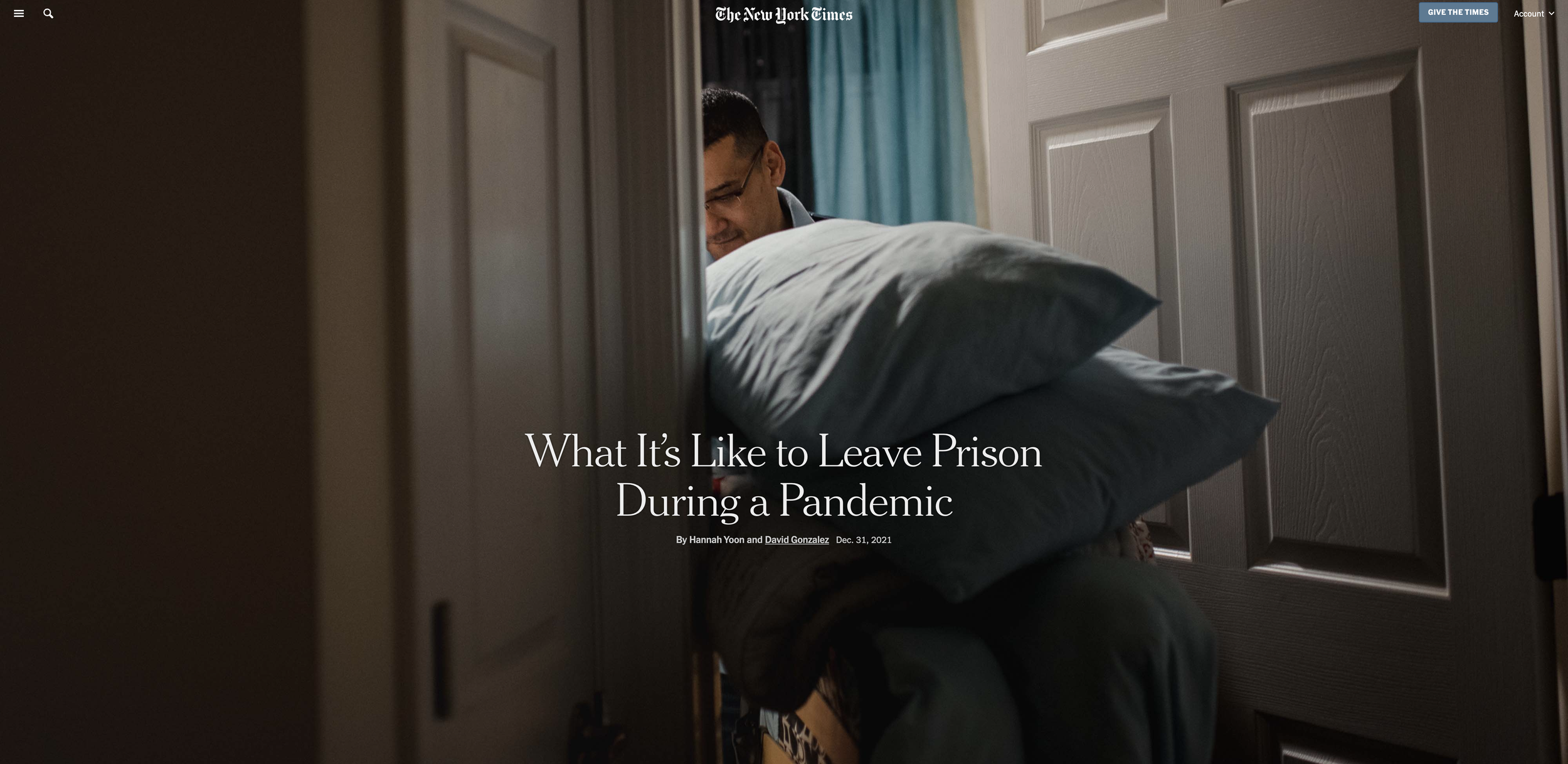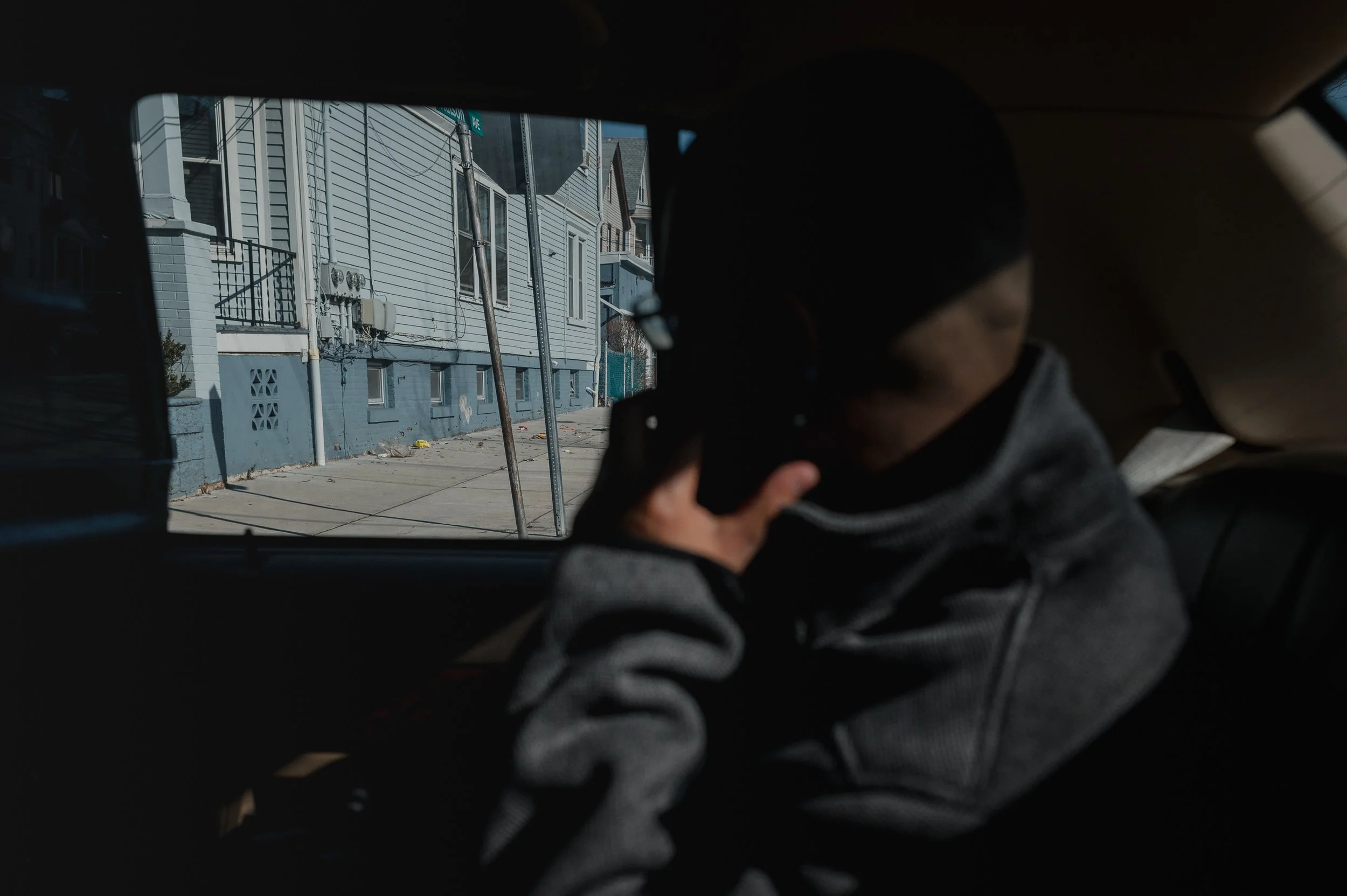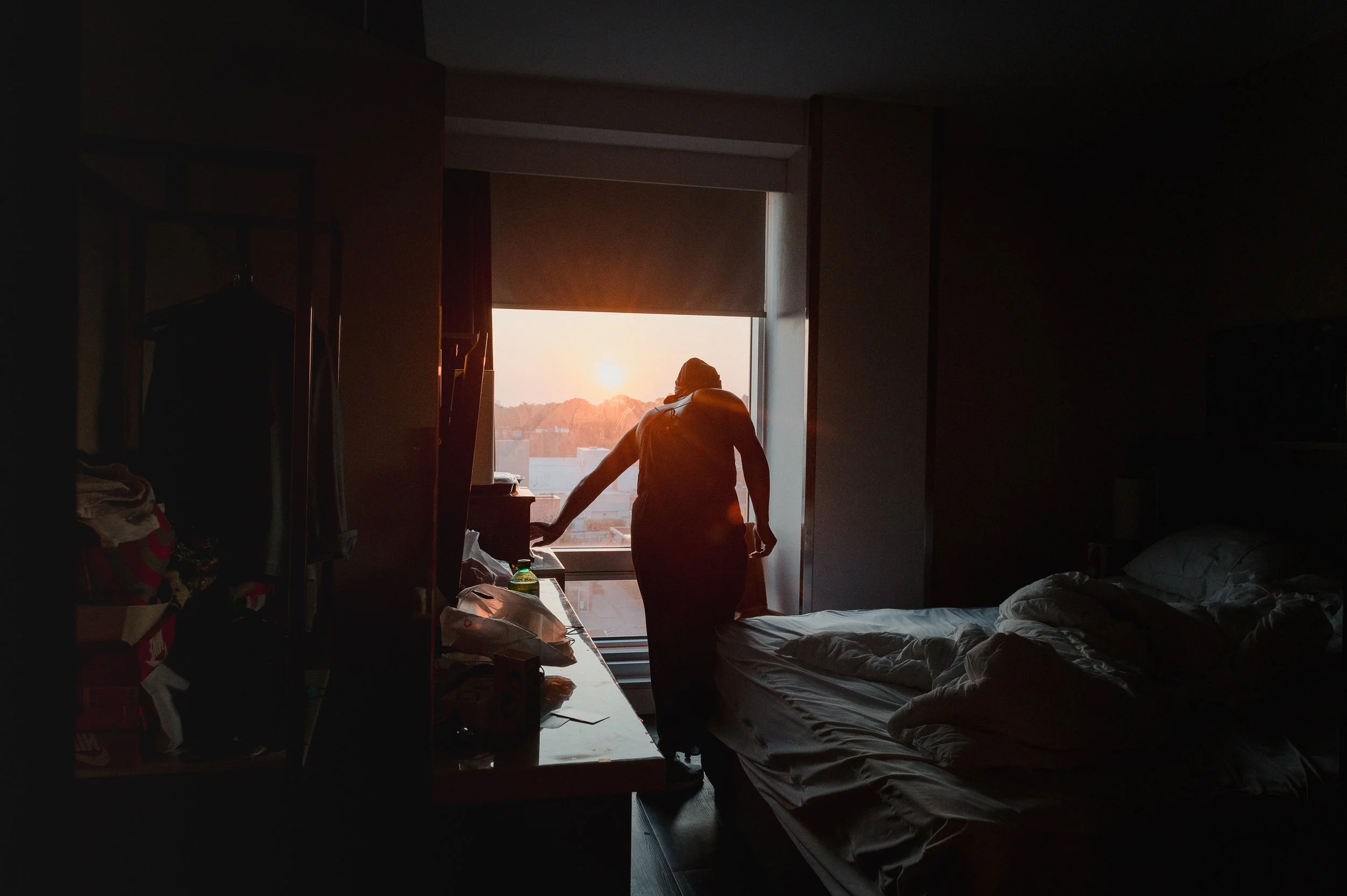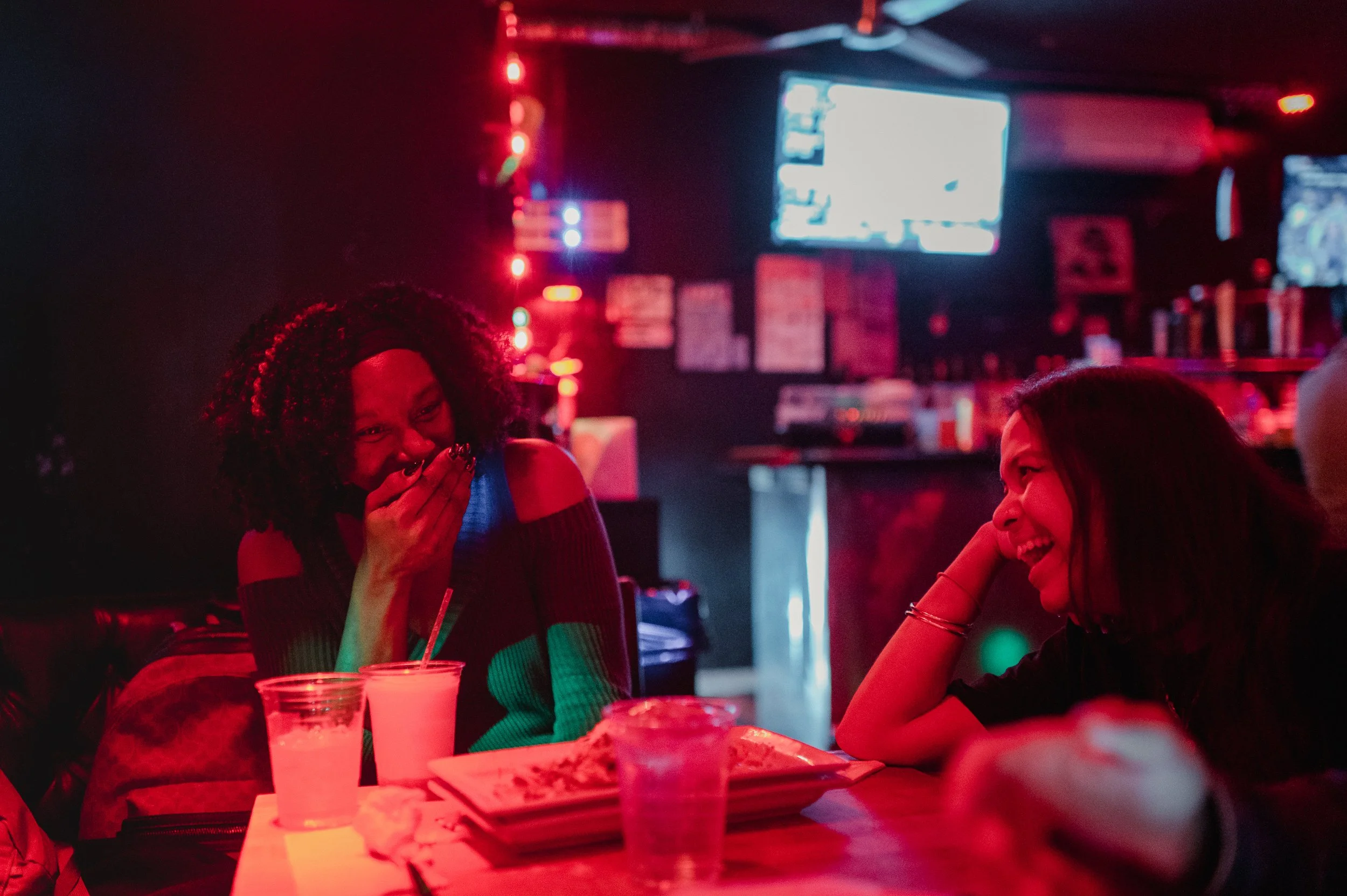What It’s Like to Leave Prison During a Pandemic for The New York Times
In November 2020, New Jersey decided to release over 2000 inmates from state prisons to reduce the spread of the coronavirus. I wanted to follow up with folks leaving prison during a pandemic to see how they experienced the reentry process. I spent 11 months with three different individuals with reporter David Gonzalez from the New York Times.
This project was supported by a special covid-19 grant from the National Geographic Society.
Below are the stories of Richard Gonzalez, Genisis Goss and Mychal Pagan
Richard
Richard was released from Northern State Prison in November 2020 after serving 13 years for armed burglary. He didn't have an apartment lined up, so he spent the first few months sleeping in the living room of his father's small townhome. Richard's main struggle after he was released was getting his driver's license. Due to a few warrants out for his arrests that were not cleared up while in prison, the time to get his driver's license was delayed. He was dependent on family members, taxis, ubers and public transportation to get to work and school. Soon after he was released, he started dating his now fiance.
Finally at the end of 2021, Richard got his driver's license. No more spending $12 on taxis to do laundry or buy groceries, or waiting an hour for the bus after finishing a night shift at his warehouse job to get to school the same morning.
“Those were the final pieces I needed to be normal,” said Richard, 45. “Once instead of going home, I stayed up 48 hours, just work and school, work and school. By the time I got home I was dying!”
At the end of 2021, Richard moved to Staten Island to live with his fiance. He is still working at a warehouse while attending his classes at Rutgers University full-time.
Genisis
Genisis was released from Attica Correctional Facility in June 2021 after serving 25 years for murder and robbery. She tried to first live at aunt’s house but didn't feel comfortable there. She ended up living in a hotel room in Queens, N.Y. while she struggled to find work and permanent housing.
Early on, Genisis faced a lot of barriers. She lost her passport and identification. She was unable to find work and had to find alternative ways to survive.
Unfortunately, after I photographed her at the end of November, I lost contact.





















